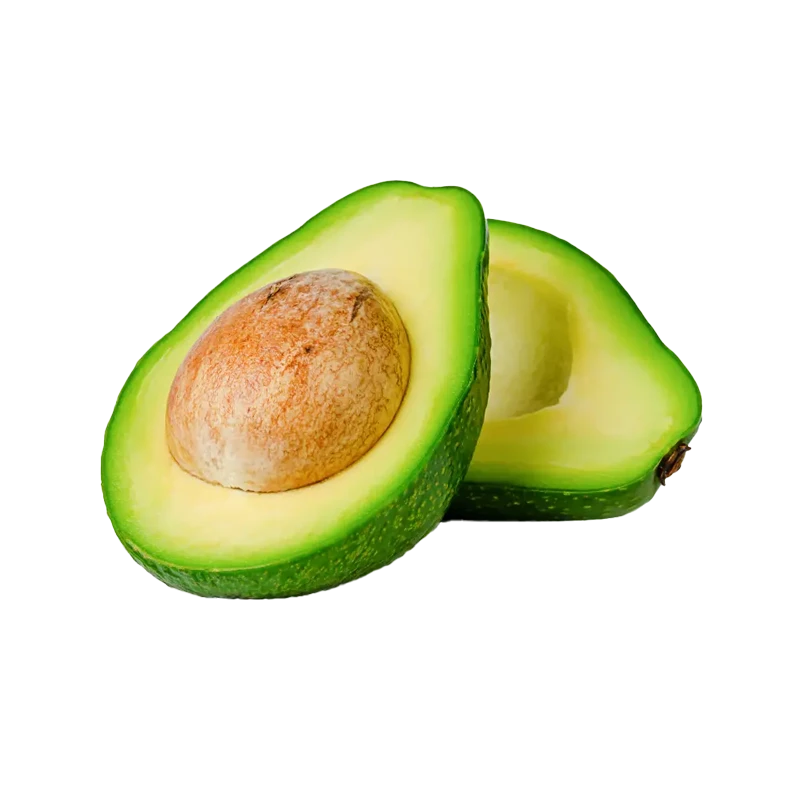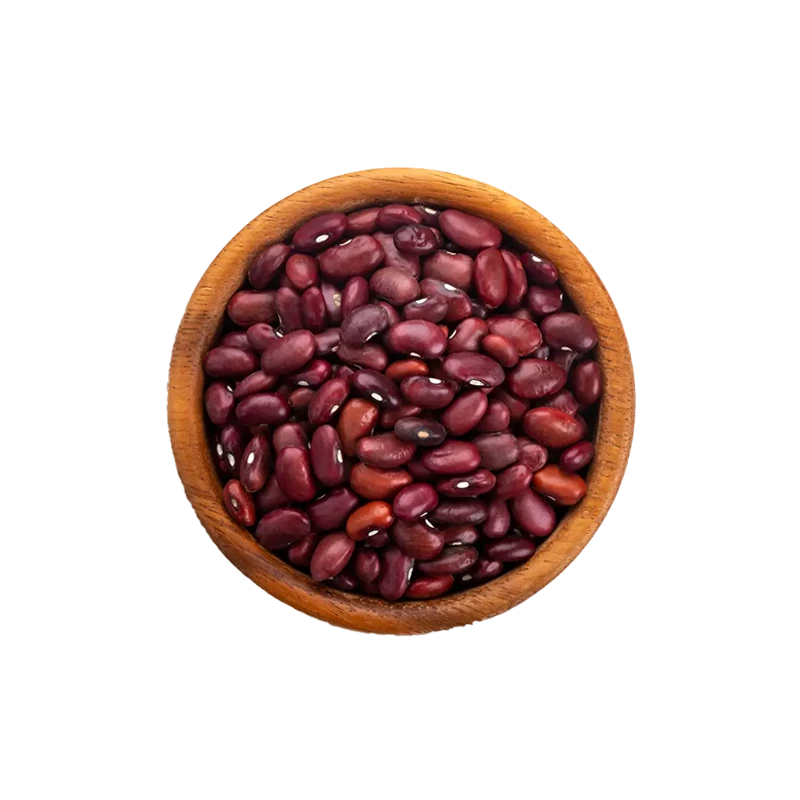Avocados — Nutrients, Health Benefits, and Shopping Tips

Written by Listonic Team
Last update on September 4, 2024
Nutrients
Nutrition facts
Amount per 100 g
Calories
🔥 160 kcal
| Nutrients per: 100 g | Value | % Daily Value* |
|---|---|---|
| Carbs | 9 g | 3.27% |
| Fiber | 7 g | 25% |
| Sugars | 1 g | 2% |
| Glycemic Index | 15 | - |
| Protein | 2 g | 4% |
| Sodium | 7 mg | 0.3% |
| Total Fat | 15 | 19.23% |
*The % of Daily Value (DV) tells you how much a nutrient in a serving of food contributes to a daily diet. 2,000 calories a day is used for general nutrition advice.
Avocados are known for their high fat content; however, most is monounsaturated fat. They are a good source of dietary fiber.
Encyclopedia of Foods. A Guide to Healthy Nutrition
7 g
🥔 Good Fiber Content
15
🟢 Low Glycemic Index
Key takeaways
Health benefits
- Rich in healthy fats, particularly monounsaturated fats, which are beneficial for heart health and reducing bad cholesterol levels.
- Supports digestive health with high fiber content, promoting regular bowel movements and a healthy gut microbiome.
- Contains essential vitamins and minerals such as Vitamin E, potassium, and folate, which are important for overall health and well-being.
- Boosts immune system with antioxidants and vitamins like Vitamin C, helping to protect the body from infections and diseases.
Health risks
- High calorie content which can contribute to weight gain if consumed in large quantities without considering overall caloric intake.
- Allergic reactions especially in individuals allergic to latex, as there is a cross-reactivity between latex and certain proteins found in avocados.
- Potential drug interactions particularly with blood-thinning medications, as avocados contain vitamin K, which affects blood clotting.
- Gastrointestinal discomfort such as bloating or diarrhea when consumed in excess due to their high fat content.
How to choose avocados
Avocados should have a slight yield to gentle pressure when ripe, with skin that can vary from bright green to deep, almost black green depending on the variety. Inside, the flesh should be creamy and uniformly colored without dark spots.
Avoid avocados that feel overly soft or show signs of indentation, as these are often overripe or bruised. Hard, unyielding avocados will require some time to ripen, so consider your timing needs.

How to store avocados
Ripe avocados are best stored in the refrigerator to slow down the ripening process. Keeping them in the crisper drawer can help maintain their freshness for several days. Unripe avocados should be kept at room temperature until they soften.
Refrigeration can extend the life of ripe avocados, but avoid placing unripe ones in the fridge. Storing avocados in plastic bags can trap moisture and lead to mold. Additionally, keeping them near ethylene-producing fruits like bananas and apples can cause them to ripen too quickly.
✅ Extra Tip
How long do they last?
Avocados can last for 4-7 days at room temperature until they ripen. Once ripe, they can be stored in the refrigerator for an additional 3-5 days. To extend their shelf life, ripe avocados can be mashed with a bit of lemon juice and frozen, lasting up to 6 months in the freezer.
What to do with leftovers?
Leftover avocados can be used in a wide variety of dishes. Mash them into guacamole or spread them on toast for a quick and healthy snack. They are also great sliced on top of salads, tacos, or sandwiches, adding a creamy texture.
Blend avocados into a smoothie for added creaminess, or use them to make a dairy-free avocado dressing for salads. If you have ripe avocados, consider making a chocolate avocado mousse or using them in baking to replace butter or oil. Avocados can also be added to scrambled eggs or used as a topping for burgers and grilled meats. For a unique twist, try grilling avocado halves and serving them with a squeeze of lime and a sprinkle of salt.
👨⚕️️ Medical disclaimer
How avocados support specific health conditions
Avocados are rich in healthy fats, which support heart health by improving cholesterol levels and reducing inflammation. Their high fiber content promotes digestive health by aiding regular bowel movements. Avocados also enhance brain function due to their vitamin E and healthy fats, and their antioxidant properties promote skin health, reducing signs of aging and improving elasticity.
Discover products from other categories
Listonic Team
Fact-checked
Our editorial team checked this article to make sure it was accurate at the time of publishing it.
Get the top-rated shopping list app







